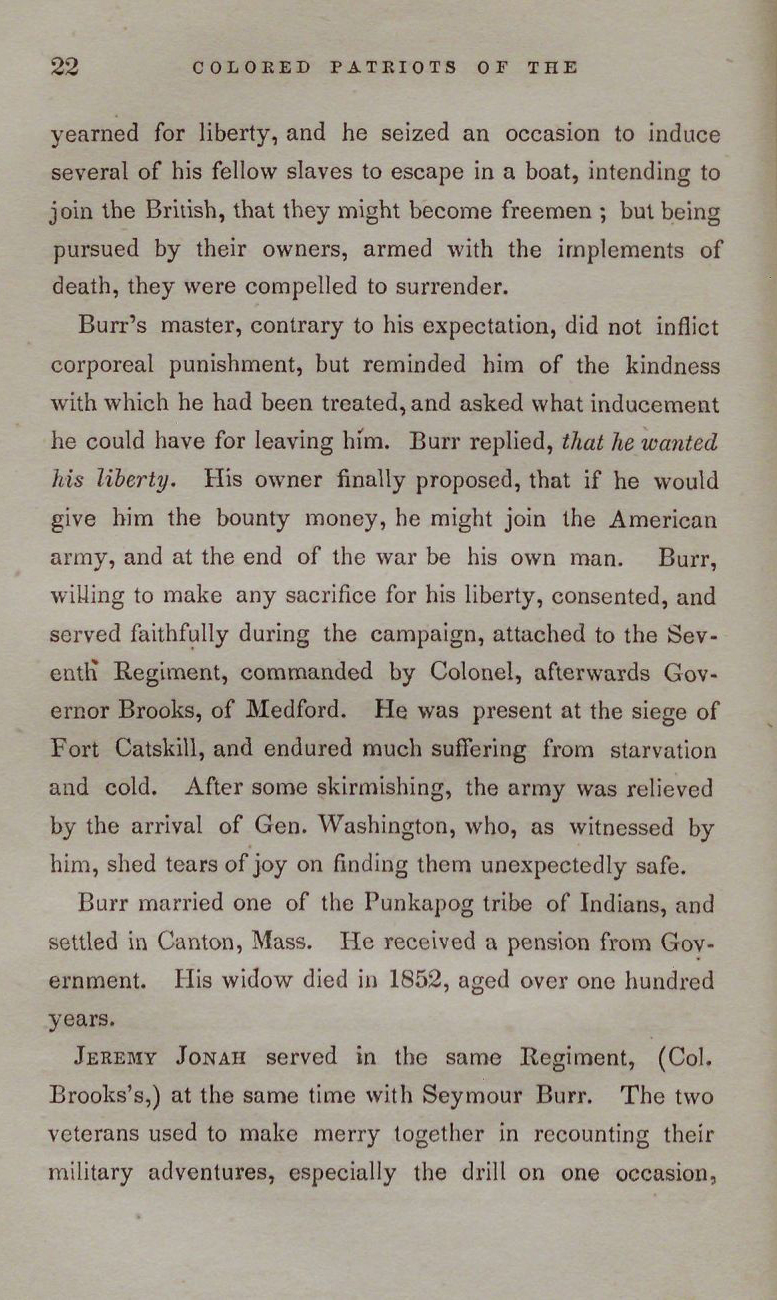GLC06132: The colored patriots of the American Revolution, with sketches of several distinguished colored persons: to which is added a brief survey of the condition and prospects of colored Americans, 1855: Page #24
Original title: GLC06132_00024.jpg
